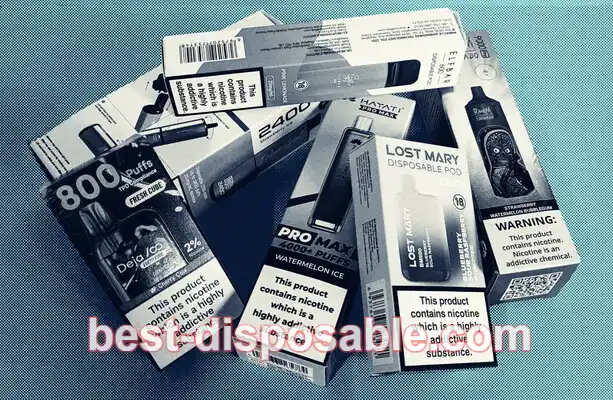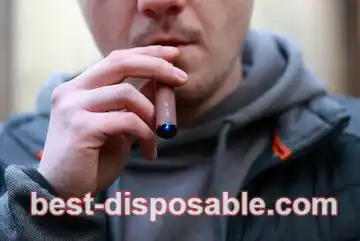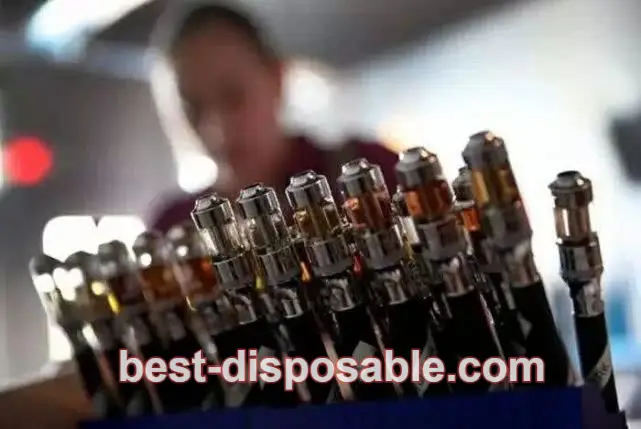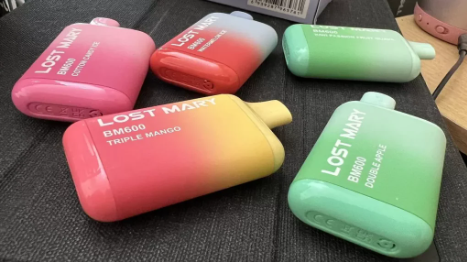In a recent undercover investigation across Dublin, Ireland’s capital city, shocking findings were uncovered about the booming, yet dangerously unregulated, vape market. Despite the rise of regulations, vapes continue to flood the streets — but not all of them are safe. Some are downright illegal, often flaunting the rules with no consequences.

The investigation, which spanned 16 different locations around Dublin, from vape shops to mobile phone repair stores, corner shops, and market stalls, revealed an unsettling trend: more than 80% of the surveyed locations were selling illegal disposable vapes.
How the Dark Side of the Vape Market in Dublin Works
The results were crystal clear: many consumers are unknowingly purchasing and using vapes that are not just unsafe, but also expired and lacking any health warnings. Worse yet, some of these products are flying under the radar of health authorities, making them accessible to vulnerable groups, including teens and young adults. It’s a fast-growing market where enforcement seems to be lagging way behind.
Bigger Is Not Always Better: The Case of the Illegal “Big Puff” Vapes
One of the most eye-opening parts of the investigation focused on the sale of oversized, illegal vapes, which in some cases contained vape juice far beyond what is legally allowed. According to local laws, vapes cannot exceed a certain volume of e-liquid, yet investigators found vapes labeled as containing 18 milliliters of juice — nearly nine times the legal limit. In another shocking discovery, they found a vape product with a whopping 10 milliliters of juice, which is still five times the allowable limit. These vapes are essentially time bombs for users, posing not just legal but serious health risks.

But it doesn’t stop there. Investigators also found vapes being sold with packaging that lacked any proper health warnings, a mandatory requirement for products sold in Ireland. In fact, out of the 21 vape products bought during the investigation, 15 had only English warnings, and none included the mandatory Irish language health advisory. Ireland’s regulations require both English and Irish warnings on all vape packaging, yet these illegal vapes continue to slip through the cracks, often blatantly violating these basic laws.
The Wild West of Vape Retail: No Rules, No Problem
Many of the vape retailers, despite being aware of the regulations, seem unfazed by the lack of enforcement. One vape store even confirmed that while they were aware of the oversized vapes being sold, they continued to stock them — at least until they were caught. However, after a few weeks, the same products were back on the shelves, still being sold under the table to consumers.
In fact, this lax attitude is quite common in the vape retail world. One particular store was selling products without even the required safety certifications, further signaling the growing issue of rogue sellers in the market.

It’s clear that the market is flooded with unregulated and potentially dangerous products — and the problem is only getting worse.
Out of Date, Out of Control: The Problem of Expired Vapes
Another concerning aspect of the investigation was the discovery of expired vapes being sold in prominent stores across Dublin. Several vapes purchased during the investigation had already passed their expiration dates, some even months or years ago. While the direct health impact of expired vapes hasn’t been fully studied, experts agree that selling expired products is an industry red flag. It’s a symptom of a broader issue: an unregulated industry where consumer safety often takes a back seat.
The Powerless Health Authority: What’s Being Done?
One of the most glaring takeaways from this investigation is the lack of effective enforcement by Irish health authorities. Barry Andrews, a Member of the European Parliament (MEP), was quick to point out that the rampant sale of non-compliant vapes highlights the Health Service Executive’s (HSE) inability to carry out proper inspections. Andrews, alongside other lawmakers, has called for a significant increase in resources for environmental health inspectors to ensure retailers are following the law and keeping consumers safe.
This issue of weak enforcement has sparked a debate about whether the government is doing enough to regulate the growing vape market. While Ireland has a law in place regulating vaping products, the authorities seem underprepared to enforce those laws at the retail level.
A Glimmer of Hope: New Legislation Coming in 2026
However, help might be on the horizon. Starting in February 2026, Ireland will introduce a new licensing system for vape retailers. Under the new law, retailers will be required to obtain an annual license to sell vapes — costing 800 euros for those selling e-cigarettes and 1,000 euros for those selling tobacco products. This new requirement means that all stores selling vapes will have to apply for a license through the National Environmental Health Service (NEHS), and undergo regular inspections to ensure they comply with the latest regulations.

This change aims to tackle the chaos in the industry, and the government hopes that by making retailers accountable, they’ll be able to reduce the sale of illegal and unsafe products. Stores that fail to comply with these new licensing rules or continue to sell to underage customers will risk having their licenses revoked — an action that could take a big bite out of the rogue market.
The Big Questions: Who’s Responsible for This Crisis?
While the new regulations are expected to curb some of the chaos in the vaping market, there are still many unanswered questions. For example, where are all these illegal products coming from? Experts suspect that many of the non-compliant vapes are being imported from international suppliers, particularly those from the UK, where they are not subject to the same stringent rules as in Ireland.
One spokesperson for a major vape distributor in Ireland admitted that the problem is widespread, saying that illegal, oversized, and improperly labeled vapes are often shipped from wholesalers in England before finding their way into Irish stores. While importing these products is not illegal, selling them in Ireland is unless they are repackaged to meet Irish regulations.
It’s a murky situation that leaves many questioning whether retailers, distributors, and even suppliers are doing enough to protect consumers. Are they simply trying to cut corners to increase profits, or is there a bigger failure in the system?
A Glimpse Into the Future: Will Vape Restrictions Get More Serious?
As the Irish government looks to tighten restrictions on vaping, there is an air of uncertainty about how this will play out. Proposals are being discussed to implement further restrictions on vape flavors and even potentially ban disposable vapes altogether. A ban on flavors would be particularly controversial, as many users argue that flavors are a key part of the vaping experience, especially among younger users who find traditional tobacco flavors unappealing.
If lawmakers move forward with these changes, it could drastically alter the vape landscape in Ireland — but whether it will reduce underage vaping or simply drive the market underground remains to be seen.
The Bottom Line: A Wild West Vape Market Desperately Needs Oversight
The investigation into Dublin’s vape market shows just how unregulated and dangerous this industry has become. With illegal products flooding the market, lack of enforcement, expired goods being sold, and serious concerns about consumer safety, it’s clear that Ireland’s government and health authorities have a lot of work ahead of them.
While new licensing laws may help bring some order to the chaos, it remains to be seen whether these regulations will be enough to curb the rise of illegal vapes. Until then, Dublin’s streets continue to be a haven for those looking to cut corners, putting consumers’ health and safety at risk in the process.
Will 2026 bring a safer and more regulated vape market to Ireland, or is it too little, too late? Only time will tell.

